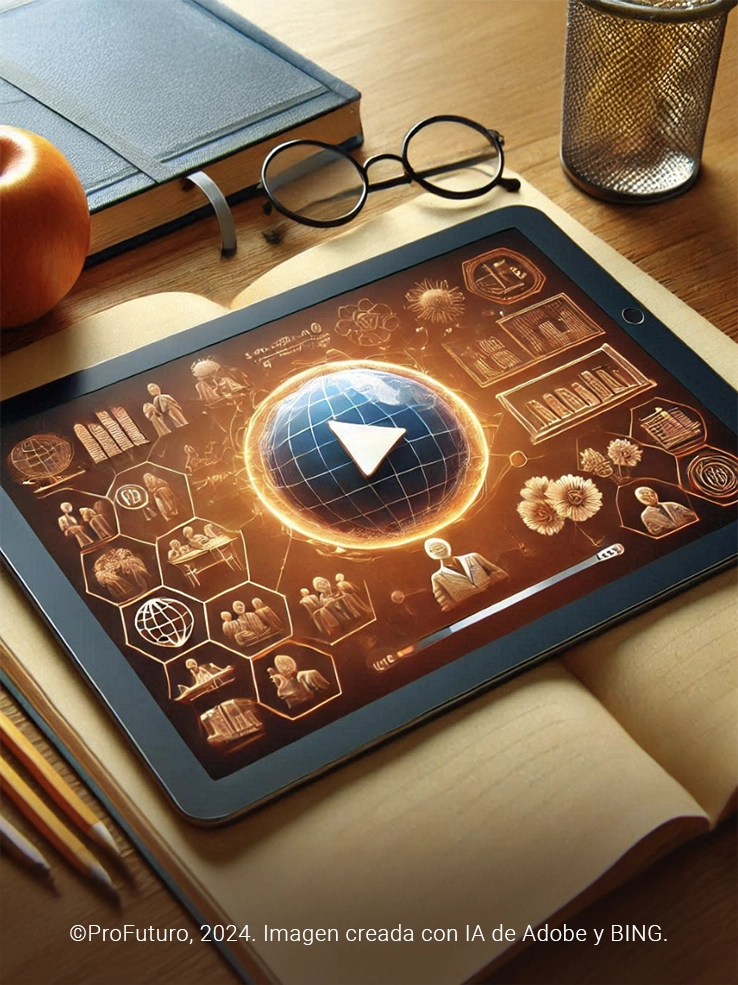Technology in the Classroom: Friend or Foe?

The presence of technology in education is nothing new, but the rise of artificial intelligence and the overwhelming presence of digital devices have reshaped the conversation. It’s no longer just about using tools but teaching students how to manage them wisely. How do we prevent screens from becoming distractions? How do we promote ethical data use?
The potential is evident: personalising learning, bridging gaps, and making education more inclusive. Yet, without careful implementation, technology could widen inequalities. The real question isn’t whether technology is good or bad but how we incorporate it intelligently. In our article The False Debate About Technology in Classrooms, we explore this point further, while Defending the Use of Digital Technology in Classrooms shares examples of how it can truly enhance learning when used correctly.
Worried about excessive screen time? Education and Screens: Training Over Prohibition highlights that banning devices outright won’t solve the underlying issues—what’s needed is education and guidance for responsible use. It’s also crucial to rethink the concept of “digital natives.” Our piece Digital Natives: The Big Lie challenges the idea that young people are born tech-savvy, while Students and Screens: What Does PISA Say? examines the data on screen exposure and academic performance.
Media Literacy: The New Essential Skill
We live in a world saturated with information. News articles, memes, viral videos—it’s relentless and often difficult to filter. This makes understanding how messages are created and shared as essential as basic literacy or numeracy.
In 2025, the flood of misinformation will only increase. The solution? Critical education. In Media Literacy: A Key Skill for the 21st Century, we emphasise the importance of teaching how to fact-check sources and question information. If you’re seeking classroom strategies, How to Learn and Teach Media Literacy provides practical tools, while media expert Mariaje González, in Media Literacy: Navigating with Insight, underscores the need for a critical approach to reading and viewing content.
Neuroscience: What the Brain Reveals About Learning
Understanding how the brain works has the power to revolutionise teaching. Emotions, curiosity, and motivation influence learning more than we often realise. That’s why, in 2025, neuroscience will continue to shape educational approaches.
The article Neuroscience, Pedagogy, and Instructional Design explains how educators can design activities that captivate attention and boost memory from early childhood. Meanwhile, Brain, Emotions, and Learning: The Neuroscience Revolution in Schools explores how confidence and motivation can profoundly impact academic success.
This more human-centred approach, which connects emotional well-being with cognitive development, will be vital in a context where personalised learning and socio-emotional support for students are gaining increasing importance.
Educational Leadership: Transforming from Within
Schools need more than skilled teachers—they require inspiring, cohesive leadership teams. A strong leadership approach can be the difference between a stagnant school and one that evolves with the times.
In School Leadership and Its Undeniable Impact on Education Quality, we explore how a well-prepared leadership team can directly influence student outcomes and well-being. The key lies in management that fosters collaboration, motivates teachers, and creatively addresses classroom challenges.
With issues like digital transformation and inclusion on the horizon, shared leadership is emerging as a vital tool for driving positive change in schools.
Data Analytics: Evidence-Based Decision Making in Education
In an increasingly digital world, data collection has become a powerful ally in improving education. We’re not talking about cold reports but tools that help identify learning difficulties, personalise teaching, and assess the effectiveness of new methods.
The challenge is handling data ethically and meaningfully. A prime example is The ProFuturo SAT: Transforming Digital Education Through Assessment, where real-time data analysis is used to tailor lessons to each student’s needs. Similarly, The Importance of Data for Improving Education emphasises how effective data use can reduce learning gaps and inform better policy-making.
These five themes—technology, media literacy, neuroscience, educational leadership, and data analytics—aren’t just trends; they are the foundations of an educational system striving for transformation. In 2025, they will be central to the global conversation and will require collaboration and involvement from the entire educational community to turn potential opportunities into tangible realities. At the ProFuturo Observatory, we encourage you to explore these topics, reflect on them, and, above all, join the debate—because education is everyone’s business.






